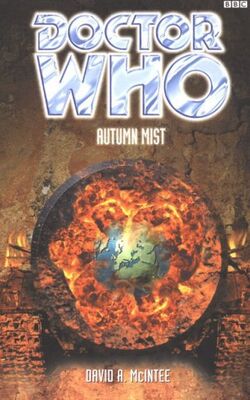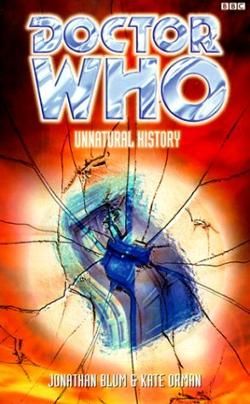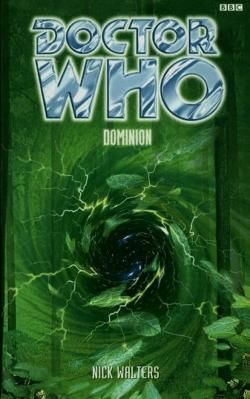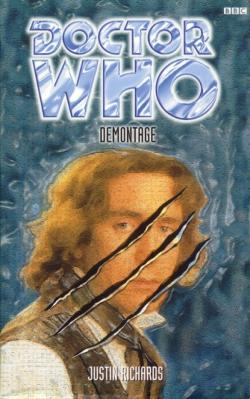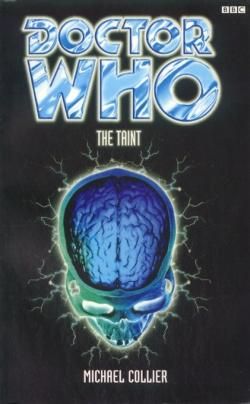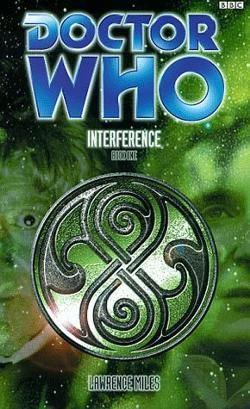
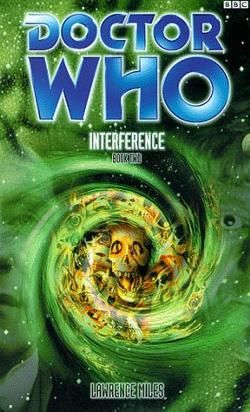
Interference: Book One & Interference: Book Two by Lawrence Miles
In Brief: Wibbly-wobbly. Timey-Wimey. The past, the present, the future. Not necessarily in that order. Sarah Jane & K9 appear. Fitz does, and then doesn't. Sam leaves. History is changed, except that it isn't.
Sorry, I realise this entry is probably all over the place but I don't have the energy to go in and do an edit, this is all very stream of consciousness.
Interference is a big (2 books worth!) bold (it decides to just re-write a large part of the series' history) and complicated (makes the 2011 series look positively linear) mess of a novel. It's brimming with some great ideas, wonderful writing and an unfortunate problem of not really having a story to tell. As with a certain current producer of the show Lawrence Miles is very good at being very clever, but makes putting little things like character and story.
It's not to say that I didn't enjoy Interference, because I did. It's easily in the top 5 Eighth Doctor books that I've read so far (admittedly not a difficult challenge) and has a verve and willingness to push the range in a new direction. As noted with many of the past 25 books there's been a real problem of most authors sticking to a fairly narrow status-quo when it comes to Who during this period. So having an example of some experimentation is welcome.
Of course the problem is that what was a shake-up for Doctor Who in 1999/2000 is today meaningless, as we have a series which has been back on TV for 8 years now and has almost completely discarded the output of the novel range, particularly the Eighth Doctor books. So having a plot-thread which involves multiple-doctors and the effect of future actions impacting the past isn't novel or really very interesting anymore. It really just reinforced what a blind-alley this range of books were, and that they really served no purpose other than bringing in a bit of annuity revenue to the BBC. Any quality to the range's output is purely by accident rather than design.
So what do we have here? Well Interference does feel like the range is finally trying to correct some of its mistakes, in particular in adding some overarching plot-threads and finally disposing with Sam. Sam's departure is surprisingly low-key, after years travelling she has simply decided to return to Earth basically at the same point she left in 1996. It's an appropriately non-descript ending for such a stultifying character. It was obvious early on that none of the range's authors could *really* get her to work, despite a few faint glimmers. So ditching her is long overdue.
In her place joining The Doctor and Fitz is a rather strange character named Compassion, who is a member of the race known as The Remote who are at the heart of events in the book (trying to sell futuristic arms to the UN in order to disrupt the timelines and get the attention of the Time Lords for a reason which I've sort of forgotten). Not quite sure what to make of her yet as she was fairly minor in the book.
As for the arc I'd mentioned it involves more of Faction Paradox, which is an off-shoot of the Time Lords who revel in creating temporal paradoxes and are reacting due to a future Time War which is mentioned a few times (no, not *that* Time War). Unfortunately I have a suspicion that much like other books which had some good ideas very little will actually be done with most that are put into play here.
What else to talk about? Hmm, the Eighth Doctor is actually not really in the book much since he spends most of both novels being tortured in North America. Both books end with a large section with the Third Doctor and Sarah Jane on the planet Dust which ends with a change to set continuity (the Doctor regenerates here into the 4th and unknowingly becomes an agent of the Faction).
Sarah Jane and K9 are in the book too, although having her meet The Doctor again here is a very different experience to what we saw in "School Reunion". With the book being very "for the fans" there's little emotional heft to the meeting, but this just wasn't something that Doctor Who did at the time. This is The Doctor meeting his previous companion who has her own life, not the slightly soap-opera rekindling of past longing we saw on TV. For some I'm sure this is preferable, but is a good demonstration of the evolution that has happened to the show from these books into the new series.
I realised I've been a bit all over the place talking about this book. That really has to do with the fact that Interference is itself rather scattered. It's still very good, but after all of the flurry of ideas and events is said and done there's actually surprisingly little to talk about. It's one author's attempt to shake up a somewhat stagnant range of books but little else. Still, definitely one of the better entries in the series.
